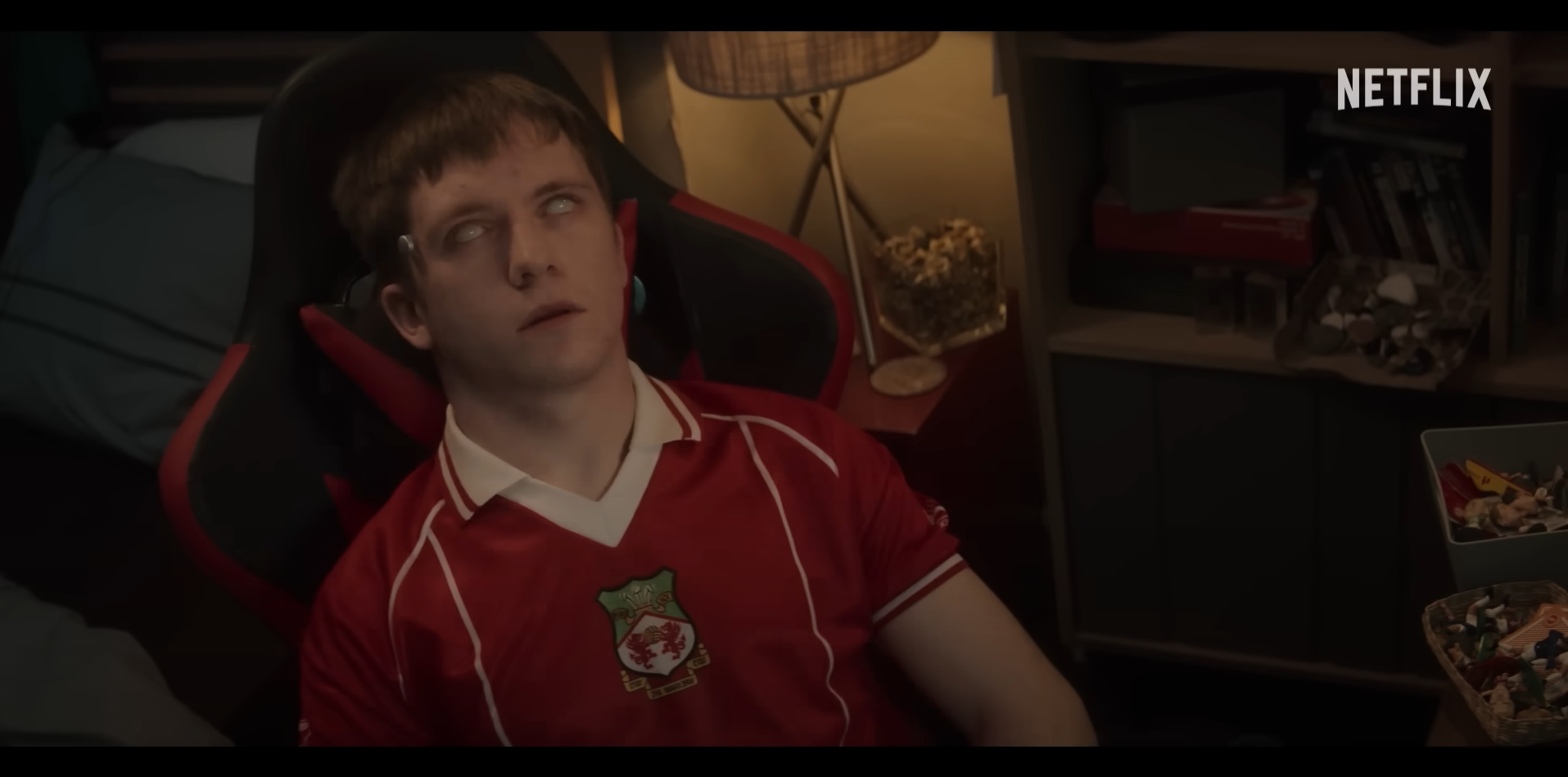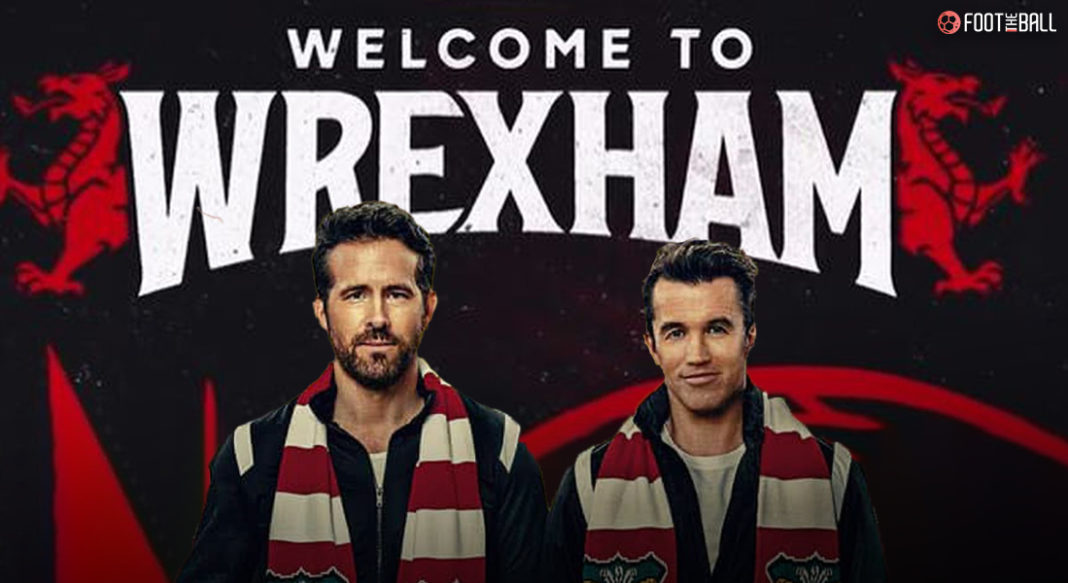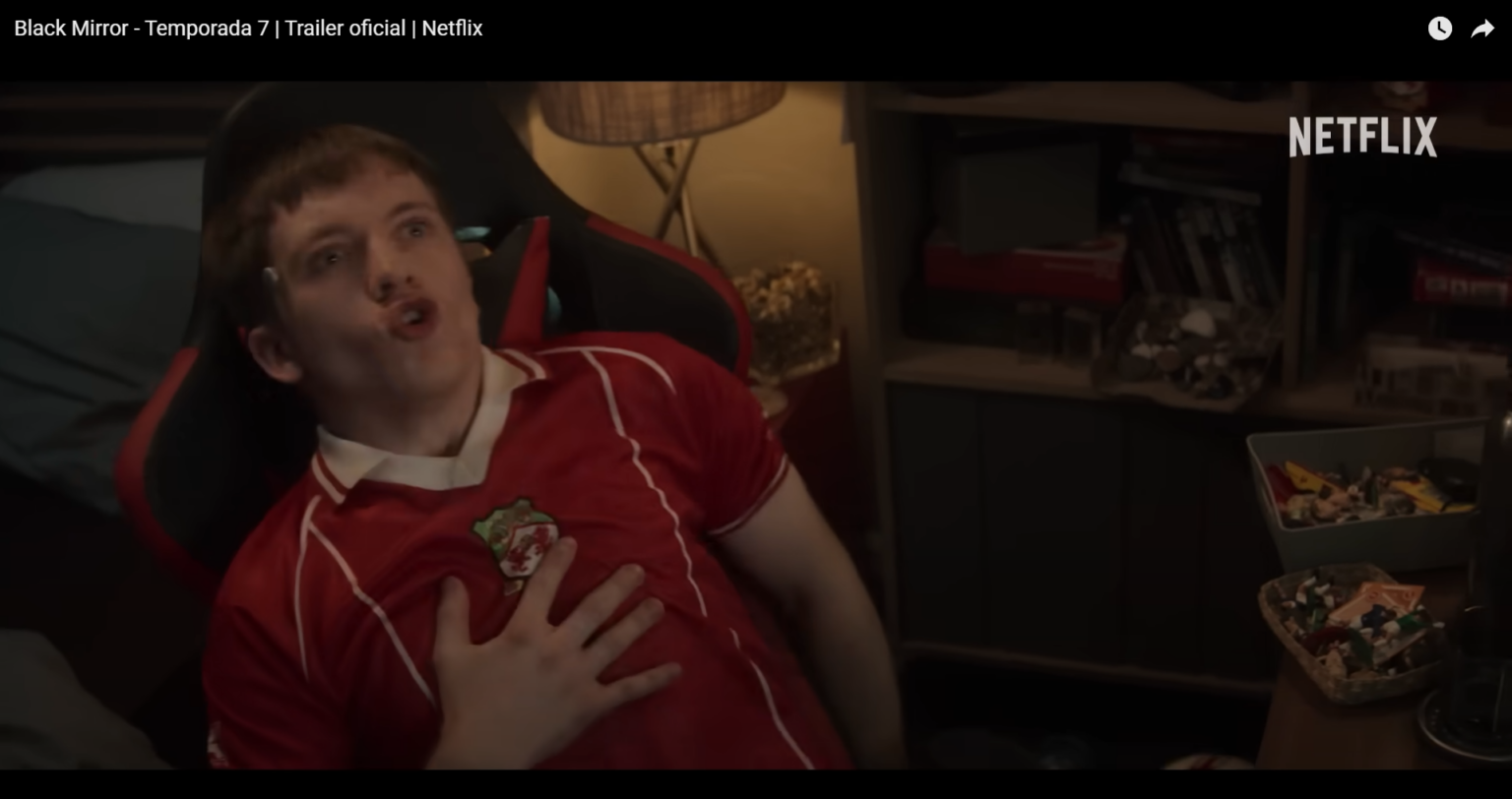How Much Does Wrexham Make From Netflix? Unpacking The Financial Impact
Detail Author:
- Name : Prof. Garry Lehner III
- Username : pfannerstill.jeramy
- Email : joy.rice@yahoo.com
- Birthdate : 1972-10-03
- Address : 36566 Hand Ways South Megane, HI 66673-1011
- Phone : 1-785-822-8448
- Company : Leuschke Group
- Job : Manager of Weapons Specialists
- Bio : Et enim magni iure omnis. Fuga quia dignissimos voluptatem ut dolores. Earum eum natus ab impedit. Dolorem aliquam eligendi aut quis rem excepturi deleniti ut.
Socials
twitter:
- url : https://twitter.com/roberts2018
- username : roberts2018
- bio : Dignissimos harum praesentium quas repellendus harum et. Voluptas quasi eum accusantium adipisci et explicabo et. Vero accusantium consectetur rerum.
- followers : 2898
- following : 64
linkedin:
- url : https://linkedin.com/in/roberts1978
- username : roberts1978
- bio : Qui est sit repellendus placeat commodi.
- followers : 5969
- following : 2014
The question of how much Wrexham makes from Netflix is, in a way, one that pops up a lot when people think about the club's incredible story. It's really quite natural to wonder about the money side of things, especially when a small town football team gets such a big spotlight. People are curious, you know, about the actual figures behind all the excitement and the buzz.
You see, when a club like Wrexham, with its long and proud history, suddenly finds itself on a global streaming platform, the financial implications are, quite frankly, pretty significant. It's not just about the show itself, but about all the doors it opens. So, to be honest, figuring out the exact amount isn't as simple as just looking at one number, because the benefits spread out in so many different directions.
This whole situation with the show, "Welcome to Wrexham," has truly changed things for the club in a big way. It has brought a kind of attention that was previously unimaginable for a team in the lower leagues of English football. We're going to explore what that means for the club's finances, and how they might be benefiting from this very public partnership, so to speak.
Table of Contents
- The Netflix Deal: Understanding the Basics
- Direct Revenue Streams from the Show
- Indirect Financial Gains: A Wave of Opportunity
- The Long-Term Financial Outlook
- Common Questions About Wrexham and Netflix
The Netflix Deal: Understanding the Basics
When people talk about "how much Wrexham makes from Netflix," it's important, you know, to first get a grip on how these sorts of deals usually work. A documentary series like "Welcome to Wrexham" isn't just a simple payment from a streaming service directly to a football club. It's actually a bit more involved than that. Typically, a production company is the one that strikes the deal with the streaming giant.
This production company then handles the filming, editing, and all the creative aspects of the show. So, the initial money from Netflix would go to the production company that made "Welcome to Wrexham," which, in this case, is likely tied closely to Ryan Reynolds and Rob McElhenney's own media ventures. The club itself, Wrexham AFC, would then receive a fee for granting access, for allowing cameras behind the scenes, and for their participation.
This fee, whatever it might be, is probably not the main way the club benefits financially. It's usually a one-time payment or a series of payments spread over the production period, and it's a bit like getting paid for your time and cooperation. The real financial gains for Wrexham, you see, come from the massive exposure and the opportunities that the show creates. It's less about a direct cash injection from Netflix for simply existing, and more about the ripple effect of being on such a widely watched program.
Direct Revenue Streams from the Show
So, when we talk about direct money Wrexham might get, it's pretty much about the agreement they made for allowing the cameras in. While the exact figures are, quite frankly, not public knowledge – and that's typical for these kinds of deals – we can make some educated guesses about the nature of these payments. It's very rare for a club to disclose the specifics of such commercial arrangements, you know, for competitive reasons.
The club likely received a licensing fee. This is a payment for the rights to film within the club, to use their name, their badge, and to tell their story. This fee would help cover any operational costs incurred by having a film crew around, and perhaps provide a little extra for the club's general funds. It's a payment for cooperation, in a way, and for being the subject of the documentary. This direct income, however, is probably just a piece of the puzzle.
Some might wonder if there are ongoing royalties or profit shares from the show's success. While possible, especially given the unique ownership structure with Ryan Reynolds and Rob McElhenney, it's not a standard feature of every documentary deal. Often, the bulk of the financial benefit for the subject of a documentary comes from the increased visibility and the subsequent commercial opportunities it creates. So, the direct payments, while helpful, are probably not the "much" that truly transforms the club's finances.
Indirect Financial Gains: A Wave of Opportunity
Now, this is where the real "much" comes into play for Wrexham. The indirect financial gains are, quite frankly, where the club has seen an absolutely massive uplift. The show, "Welcome to Wrexham," has been a global phenomenon, and that kind of exposure is priceless for a club that was, in a way, struggling in the lower divisions. It's like a giant advertising campaign that reaches millions of people who had never even heard of Wrexham before.
Think about it: suddenly, a football club from a small Welsh town is being talked about in living rooms across North America, Australia, and beyond. That level of recognition translates directly into commercial opportunities that were simply not available before. It's not just about the money from Netflix; it's about the money that flows in because of Netflix. This ripple effect is, you know, truly significant for the club's growth and future prospects.
The sheer scale of this new audience means that Wrexham can now attract different types of partners and fans. This shift in visibility has opened up, quite literally, a whole new world of income streams that go far beyond any direct payment for the documentary itself. It's a very clear example of how media exposure can completely change the fortunes of a sports team, apparently.
Boosted Merchandise and Kit Sales
One of the most immediate and visible impacts of "Welcome to Wrexham" has been the explosion in merchandise sales. Before the show, Wrexham's kit and club merchandise were primarily bought by local fans and dedicated supporters. Now, you know, people from all over the world are buying shirts, scarves, and other items. This is a very clear and direct financial benefit.
The demand for Wrexham jerseys, in particular, has gone through the roof. It's not just about supporting the team; it's about being part of the story, part of the journey that people have seen unfold on their screens. This means a far larger amount of sales than ever before, which, naturally, brings in a lot more money for the club. The club's official store, both online and at the stadium, has seen a substantial increase in activity, apparently.
This isn't just a small bump; it's a sustained surge in sales that continues as the show gains new viewers and as the club achieves more success on the pitch. Every sale contributes directly to the club's coffers, helping to fund operations, player wages, and stadium improvements. It's a significant, important, major part of their new financial picture, so to speak.
Increased Ticket and Matchday Income
Another area where Wrexham has seen a dramatic increase is in matchday revenue. The Racecourse Ground, Wrexham's home stadium, is now consistently selling out. Before the Netflix show, while Wrexham had a loyal fanbase, filling the stadium for every game was not always a given, you know. Now, it's a completely different story.
The demand for tickets, especially for home games, is incredibly high. This means more money from ticket sales, but also from everything else that happens on a matchday: food and drink sales, program sales, and other in-stadium purchases. It's a very lively atmosphere, and people are, quite frankly, eager to be a part of it. This direct increase in foot traffic and attendance is a clear financial win for the club.
Furthermore, the club has likely seen a rise in season ticket holders, securing a stable base of income for the entire season. The atmosphere created by a full stadium also makes the club more appealing to players and potential sponsors, creating a positive feedback loop. This financial boost from matchdays is a big, big deal for a club that relies heavily on its fan base, honestly.
New Sponsorship and Partnership Deals
This is arguably one of the biggest financial wins for Wrexham. Before the Netflix show, Wrexham's sponsorship opportunities were mostly limited to local businesses or smaller national brands interested in non-league football. Now, with global exposure, the club can attract much larger, international sponsors. This is a game-changer, in a way.
Brands want to associate themselves with a successful, feel-good story that has a massive global audience. The "Welcome to Wrexham" documentary provides exactly that platform. This means the club can command far higher fees for shirt sponsorships, stadium naming rights, and other commercial partnerships. The value of their brand has, quite literally, skyrocketed. We've seen some very prominent brands become partners, which is a testament to the show's reach.
These larger sponsorship deals provide a substantial, consistent income stream for the club, allowing them to invest more in the squad, facilities, and youth development. It's a far larger amount of money coming in from these sources than they would have ever seen without the show, so it's a very clear and important financial benefit, you know.
Global Brand Recognition and Future Value
Beyond the immediate cash injections, the Netflix show has given Wrexham something incredibly valuable: global brand recognition. This isn't something you can easily put a price tag on, but it has a huge impact on the club's future financial potential. Wrexham is no longer just a Welsh football club; it's a global story, a symbol of hope and community. That kind of widespread awareness is, quite frankly, a huge asset.
This increased brand value means that any future media deals, touring opportunities, or even potential player transfers could be negotiated from a much stronger position. The club's "stock" has risen dramatically. It makes them more attractive for friendly matches abroad, for example, or for selling broadcast rights to their games in new markets. It's about building a sustainable, long-term financial foundation, you know.
The show has essentially built a loyal, global fanbase that will continue to follow the club, buy merchandise, and engage with its content for years to come. This enduring appeal is a very significant, important, major asset that ensures the club's financial health far into the future. It's about creating a lasting legacy, apparently.
Tourism and Local Economy Impact
While not directly a revenue stream for the club itself, the Netflix show has had a truly remarkable impact on tourism in the town of Wrexham. Fans from all over the world are now making pilgrimages to the Racecourse Ground, to see the stadium, visit the club shop, and generally soak up the atmosphere. This influx of visitors is a huge boost for the local economy, which, you know, indirectly benefits the club and its community.
These tourists spend money in local hotels, restaurants, shops, and other businesses. This creates jobs and brings prosperity to the town, which is, quite frankly, a wonderful side effect of the club's newfound fame. A thriving local economy often means more local businesses are in a position to sponsor the club, or more local people have disposable income to spend on tickets and merchandise. It's a win-win situation, in a way.
The club is deeply embedded in the community, so anything that benefits the town of Wrexham also, in a very real sense, benefits the club. It fosters a stronger sense of local pride and support, which is, you know, invaluable. This economic uplift is a significant, important, major part of the overall positive impact of the show.
Player and Staff Attraction
It's not just about money coming in; it's also about how the club can spend its money more effectively, or even attract talent without having to pay quite as much. The appeal of playing for Wrexham, or working for the club, has grown immensely because of the Netflix show. Players, particularly those looking for a fresh start or a unique experience, might be more inclined to join Wrexham now, even if other clubs offer similar wages. It's the "Wrexham story" that appeals, you know.
Being part of a globally recognized club, with owners like Ryan Reynolds and Rob McElhenney, offers a unique platform for players. This means Wrexham can potentially attract higher-caliber talent than they might otherwise be able to afford, which, quite frankly, helps them achieve their on-field goals. A stronger squad means better results, which in turn leads to more success, more fans, and more revenue. It's a virtuous circle, basically.
This attraction extends to coaching staff, medical teams, and other personnel who might want to be part of such an exciting project. The club becomes a desirable place to work, which can lead to better performance across the board. So, in a way, the show helps the club get more value for its money when it comes to attracting the best people, apparently.
The Long-Term Financial Outlook
When we look at how much Wrexham makes from Netflix, it's really about understanding that the show isn't just a one-off event. It has created a lasting foundation for the club's financial future. The owners, Ryan Reynolds and Rob McElhenney, have made it clear that their investment is a long-term project, and the documentary is a huge part of that strategy. It's about building something sustainable, you know.
The continued success of the show, coupled with the club's promotions through the football leagues, keeps the story fresh and relevant. This means the indirect revenue streams—merchandise, sponsorships, global recognition—are likely to continue growing, or at least remain at a much higher level than before. The club is now operating on a completely different scale than it was just a few years ago, which is, quite frankly, remarkable.
Future seasons of "Welcome to Wrexham" will only reinforce this, bringing in new viewers and reminding existing fans of the club's journey. This sustained visibility is the key to maximizing the financial benefits over time. It's about leveraging that initial burst of fame into consistent, long-term financial health. Learn more about Wrexham's amazing journey on our site, and check out this page for more details on sports documentaries.
Common Questions About Wrexham and Netflix
Did Ryan Reynolds and Rob McElhenney pay for the documentary themselves?
While Ryan Reynolds and Rob McElhenney own Wrexham AFC, the documentary "Welcome to Wrexham" was produced by a separate production company, which then sold the rights to Netflix. So, while their ownership of the club certainly made the documentary possible and gave it a unique angle, Netflix would have paid the production company for the show. The owners' involvement helped get the deal done, but it wasn't them personally funding the show's production from their own pockets, so to speak, in the same way they bought the club. It's a bit of a distinction, you know.
How does the Netflix show help Wrexham get better players?
The Netflix show, quite frankly, makes Wrexham a very appealing club for players. It gives them a global platform, a chance to be part of a famous story, and to play in front of a much larger audience, even in lower leagues. This increased visibility can be a big draw for players looking to raise their profile or be part of a unique project. It means the club can attract talent that might otherwise go to bigger clubs, or players who want to be part of something special, you know. It adds a certain "glamour" to playing for Wrexham that wasn't there before, apparently.
Is Wrexham now one of the richest football clubs because of Netflix?
While Wrexham's financial situation has improved dramatically due to the Netflix show and the owners' investment, it's not accurate to say they are one of the richest football clubs overall. They have certainly become much richer for a club in their division, and their resources are far greater than most teams at their level. However, compared to clubs in the Premier League or top European leagues, their revenue is still, quite frankly, a fraction. The show has given them a huge boost and a sustainable path to growth, but they are still building towards becoming a major financial powerhouse in the broader football world, so to speak. They've come a very long way, though, that's for sure.


